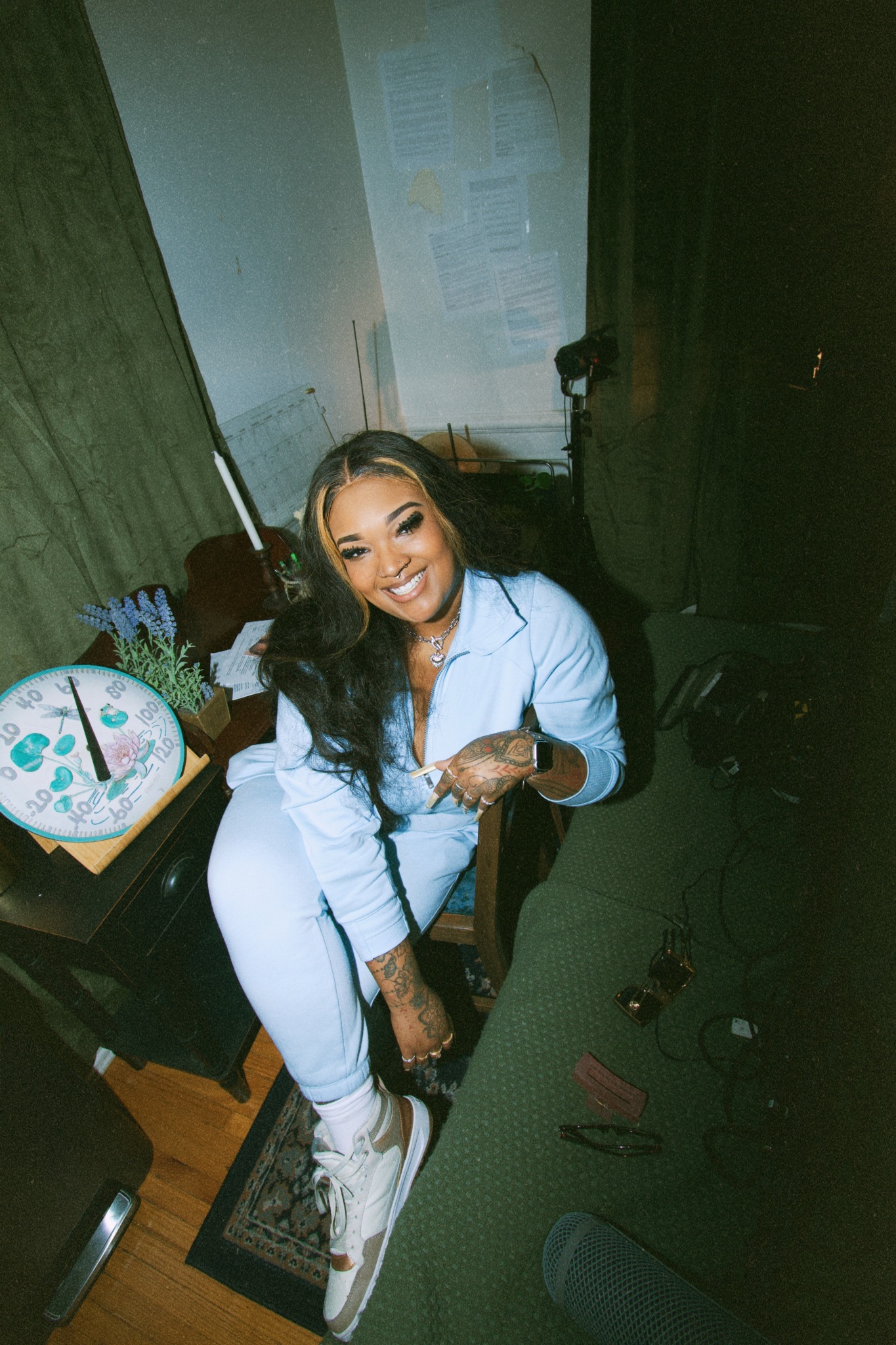We caught up with the brilliant and insightful Mia Upshaw a few weeks ago and have shared our conversation below.
Mia , appreciate you joining us today. Are you happier as a business owner? Do you sometimes think about what it would be like to just have a regular job?
Am I happier as a business owner?
Yes, because I’m doing what I love and what I’m supposed to be doing. I’m following my dreams and my goals. But am I always happy? No. This is my first year being full-time in my business, in the film industry, and just as a full-time creative. It’s tough—it’s like being on a never-ending rollercoaster.
Do I think about what it would be like to have a regular job? Yeah, sometimes. Especially when things get bad—when contracts dry up or when money starts getting tight. Of course, I’ve thought about it. One of my friends told me something that stuck with me. She said, “You’ll probably always feel overworked and underpaid, no matter what. So would you rather feel that way working for someone else’s business or your own?” When she put it like that, it hit me. But even thinking about going back to a regular job isn’t something you can just snap your fingers and do. It takes time to make that kind of switch.
The Last Time I Thought About It
Honestly, the last time I thought about getting a regular job was just recently. The last quarter of 2024 hit my business hard. I work with a lot of startups and small businesses, and they’ve been facing challenges, which ended up affecting me. Three of my main contracts either had to scale back or terminate, not because of anything I did, but because of their financial situations. Two startups lost funding and needed to focus their budgets elsewhere, and another company wasn’t getting enough clients. That slowdown trickled down to me, and this month has been one of the slowest I’ve had all year.
That’s when I started asking myself: Do I need to get a part-time job? Should I go back to working full-time for someone else? But then I thought about everything I’ve worked for and the people relying on me. I have filmmakers depending on me to help get their productions off the ground next year. I have clients who trust me to build their digital presence and grow their businesses. If I quit, that leaves them hanging.
What I’ve Learned
This whole experience has shown me that this is what I want to do. It’s not just about the money; it’s about the impact I’m making. I’ve realized I need to set my business up better. I’ve started saving more, using systems to track my money, and thinking about the kinds of contracts I need—longer-term agreements with more established companies that can offer stability.
Yeah, the ups and downs can be exhausting, and I’ve had moments where I wanted to throw in the towel. But at the end of the day, I know this is where I’m meant to be. It’s not easy, but I’d rather keep going and figure it out than settle for something that wouldn’t make me happy in the long run.
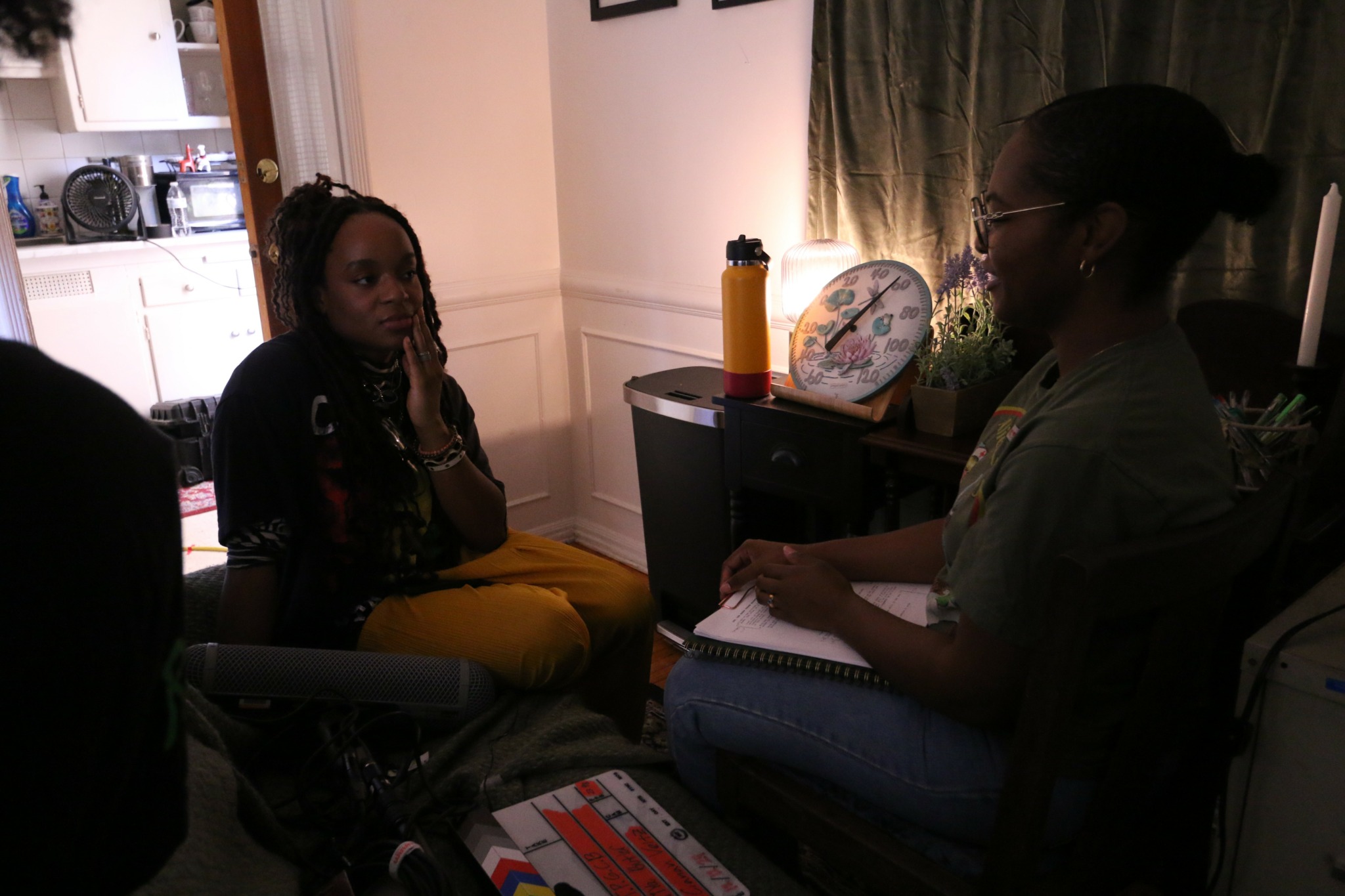
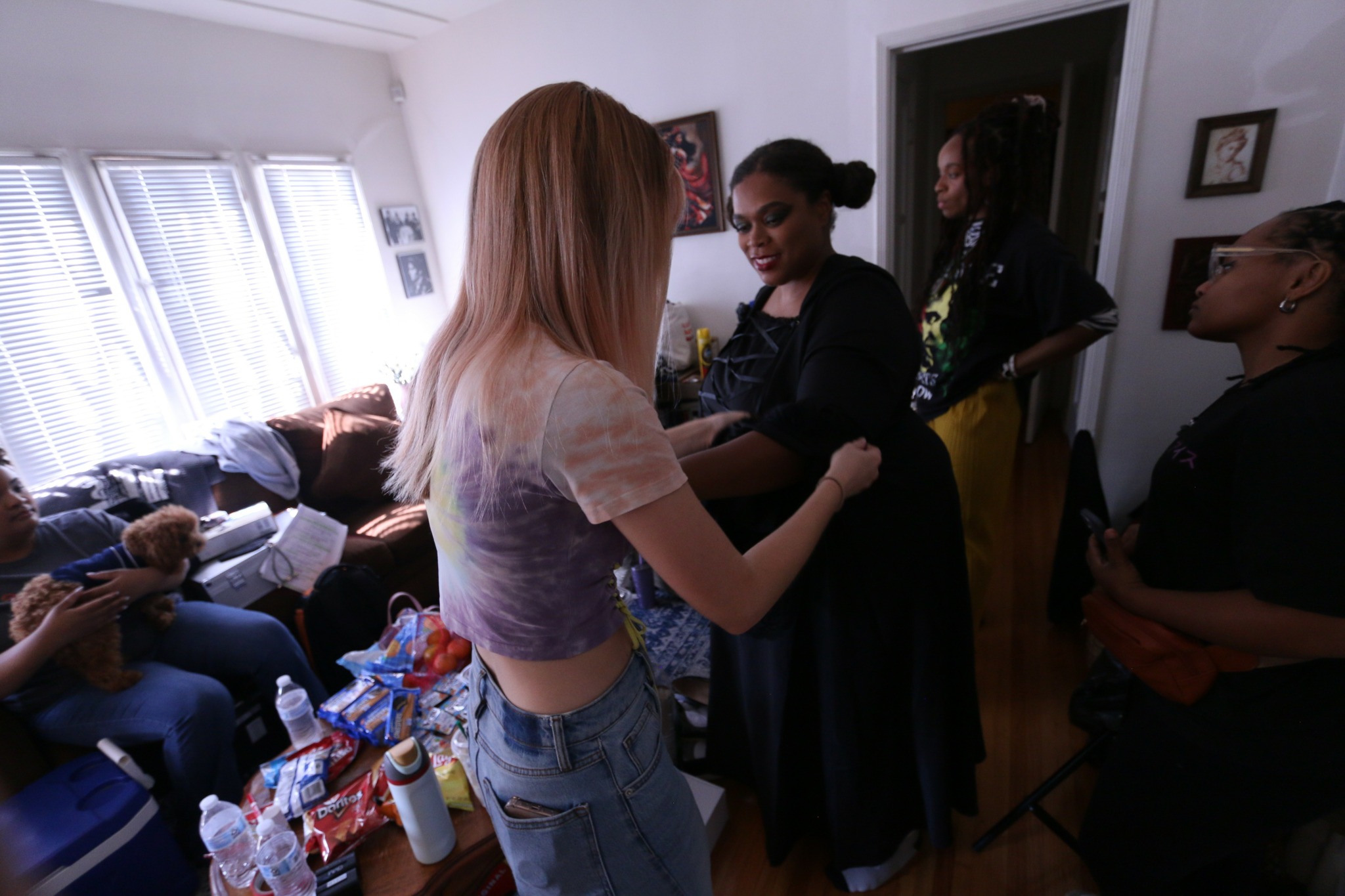
Great, appreciate you sharing that with us. Before we ask you to share more of your insights, can you take a moment to introduce yourself and how you got to where you are today to our readers.
It’s funny because I feel like every time I explain what I do, I describe it a little differently. But in a nutshell, I’m a film producer, filmmaker, director, creative, and entrepreneur. I currently run two—almost three—businesses, with my main focus being the film industry.
I own a production company that primarily supports African-American filmmakers and creatives in bringing their stories to life, whether through feature films, short films, series, music videos, or visuals. In addition, I run a creative agency where we offer graphic design, content creation, and social media services. We primarily work with Black-owned businesses, startups, and marketing agencies, helping them with everything from LLC filing to branding.
And next year, I’m planning to launch an online store!
For my production company, I wouldn’t say I solve a problem as much as I create a space. I carve out a safe, empowering environment for Black creatives to confidently tell their stories—stories produced by and for Black people. Unlike working with larger companies, where creators often feel the pressure to dilute their narratives, we ensure that their stories remain authentic and true to their culture.
As a producer, I don’t heavily influence the creative aspects of a project. Instead, I encourage filmmakers and writers to craft the best version of their stories without overthinking. I remind them that their story doesn’t need to be perfect to deserve an audience.
What sets me apart is the simple fact that there aren’t many Black women in the film industry, particularly those running independent production companies. While we do exist, we’re a rare sight. I’m proud to be one of the few and to help other creatives feel confident about their dreams.
What I’m most proud of is being able to pour confidence back into Black filmmakers, writers, and directors. Many of them feel like they don’t have the resources or knowledge to create a film, even though they know it’s their dream. I help them see that their goals are achievable, even if their first film isn’t perfect.
It’s also rewarding to show photographers and videographers that the skills they already have can be applied to filmmaking. For example, a photographer can transition into being a cinematographer or director of photography—they’re already halfway there! Watching these creatives blossom and start believing in themselves is the most fulfilling part of what I do.
I’ve always wanted to be part of the film world. As a little girl, I dreamed of being an actress. I spent over a decade acting on stage, starting as a child actress and continuing until I turned 18.
While in high school, I joined the film club, thinking I’d stick to acting. But when it came time to make a film, I realized I didn’t fit in with the only available group of white boys. So, I decided to start my own production. Picking up that camera for the first time at 14 completely changed my life—I knew I wanted to be a filmmaker.
From there, I started making fun videos on YouTube, which led to helping other filmmakers with short films, features, and music videos.
It wasn’t easy. A lot of people didn’t see filmmaking as a real job. I struggled academically in high school, didn’t care much about traditional education, and wasn’t sure college was for me. But I knew that if I went, it had to be for something I loved.
Eventually, I submitted my reel to Loyola, got a scholarship, and attended film school. It wasn’t a smooth journey—I faced a lot of challenges, but I learned so much about filmmaking and grew my production company during that time.
After graduating, I knew I didn’t want to stay in Louisiana. I started looking for ways to combine my love for film with other interests. During my final semester, I interned at a photography studio and saw a TikTok about social media management in the creative space. That inspired me to dive into branding, marketing, and social media alongside my film work.
So, while growing my production company, I also began taking on social media projects, which eventually turned into my creative agency. It’s been an amazing way to stay creative while helping businesses thrive.
I want people—especially Black creatives—to know that filmmaking is possible for them. You don’t need to have it all figured out or be perfect. You just need to start. There’s space for your voice, your story, and your dreams.
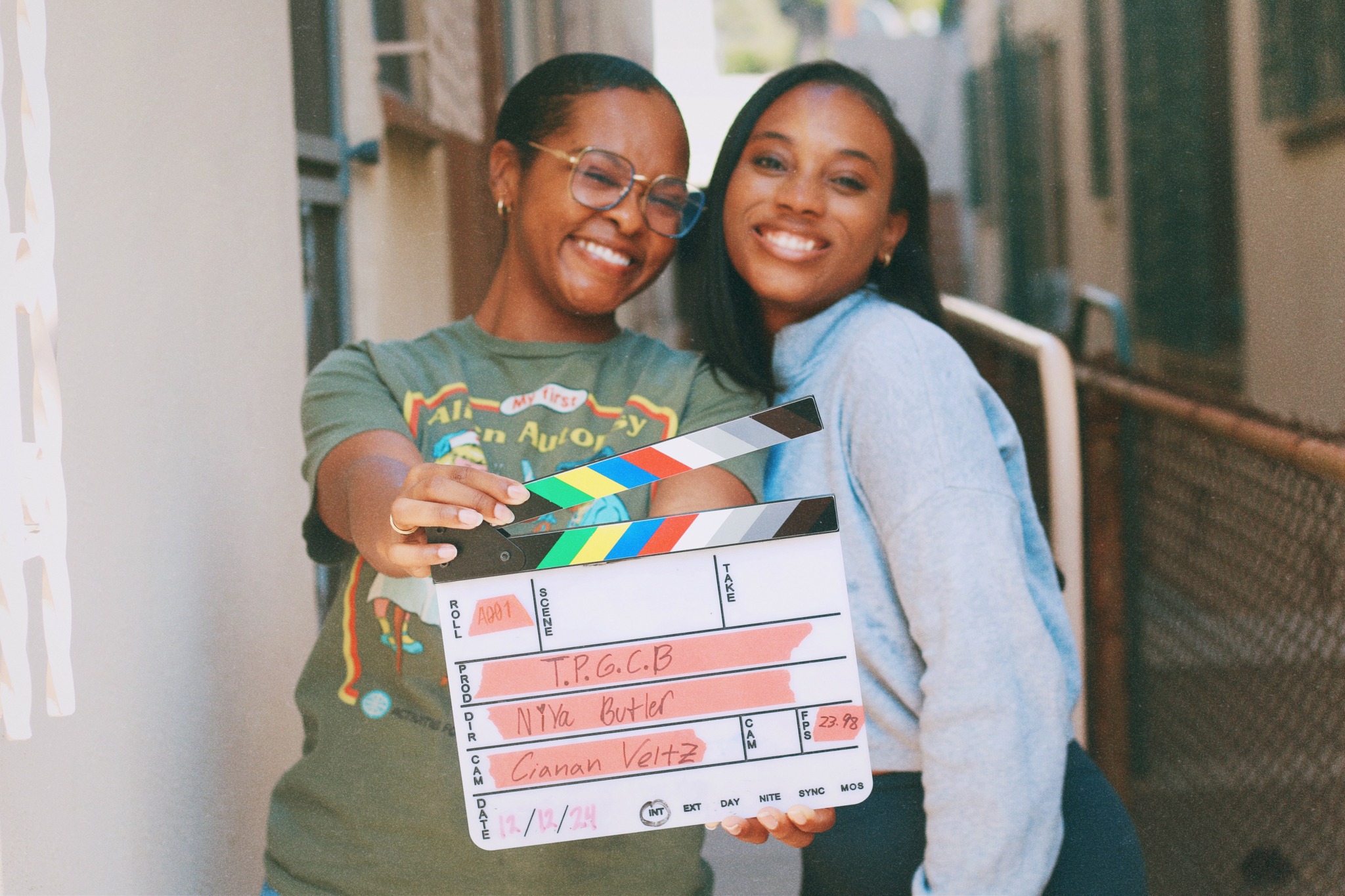
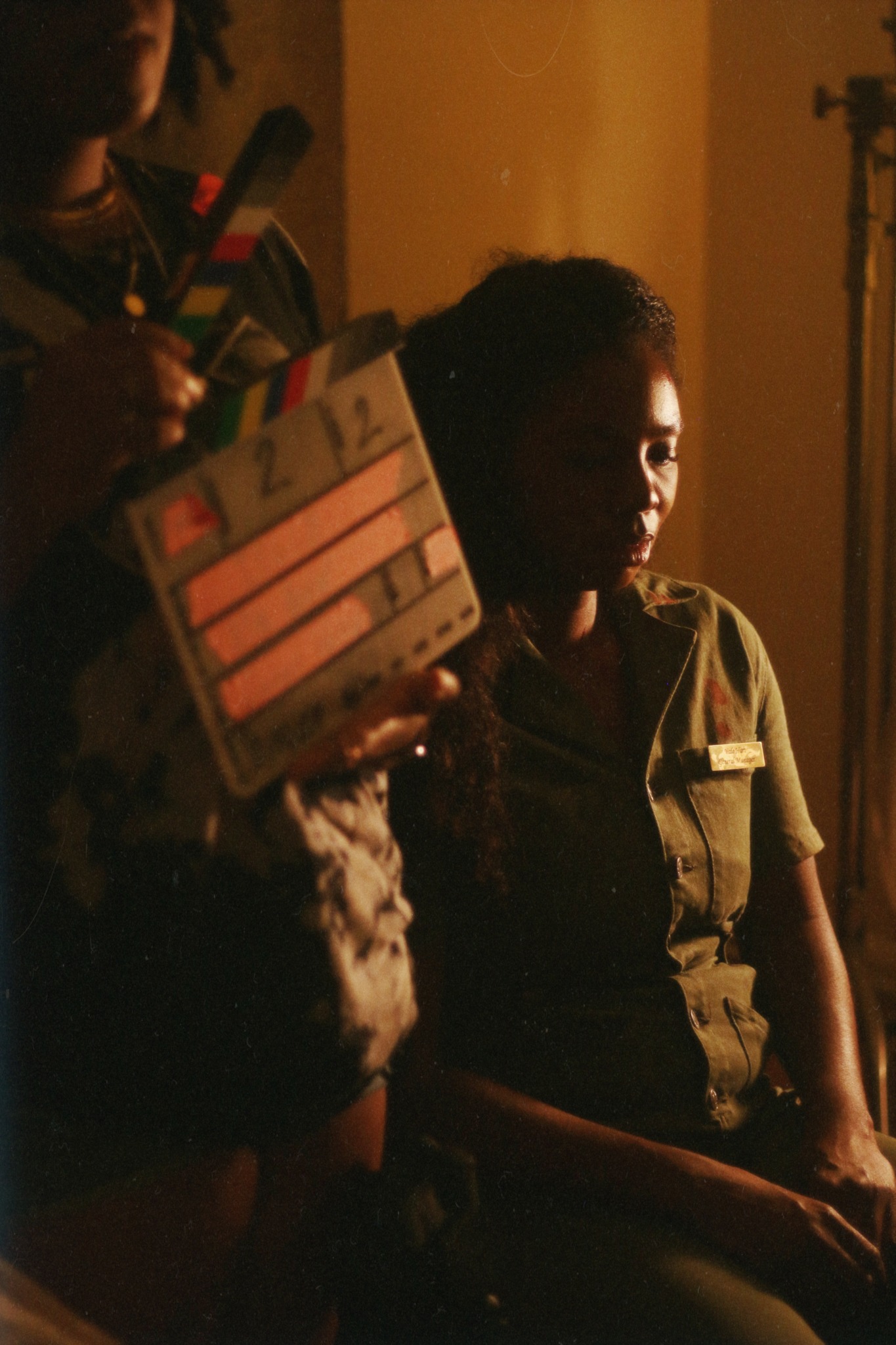
Do you have any insights you can share related to maintaining high team morale?
This past year, my first full year running my business with a team, has been a huge learning experience. Over the summer, I launched an internship program, which led to my team growing significantly—I now have interns and an admin assistant, Cyannah. Managing a team has been challenging because it involves so many moving parts, like delegating tasks, understanding everyone’s strengths, and figuring out the right level of guidance for each person. Delegating was particularly hard for me since I’ve been running my production company solo since I was 16, doing everything from marketing to client meetings myself. Handing over responsibilities to others was a big adjustment, but I’ve learned that trusting my team and letting go of control are essential for growth. Delegation allows me to focus on the bigger picture, and it’s been rewarding to see my team rise to the challenge, even if it takes trial and error.
When mistakes happen, I always reflect on whether I communicated clearly and set my team up for success. I value creating a healthy, supportive work environment. I try to be patient, understanding, and respectful in my feedback. I celebrate my team’s wins and make sure they know how much I appreciate their hard work. I’ve also been very intentional about fostering a culture of respect and collaboration, shaped by my experiences of being treated poorly in other workplaces—I never want anyone on my team to feel that way.
And I can’t talk about the challenges of this past year without acknowledging how personal experiences shaped me. When I went through a very difficult time dealing with a stalker, the only people who truly supported me were my parents, especially my dad. Thank you, Dad, for being my rock during that time.
My team makes everything I do possible. Without them, I wouldn’t be able to accomplish half of what I’ve achieved. I genuinely see them as partners, and I pour into them with gratitude because they choose to work with me. Their efforts have brought my business to where it is today, and I’m so thankful for the impact they’ve had on both my work and my life.
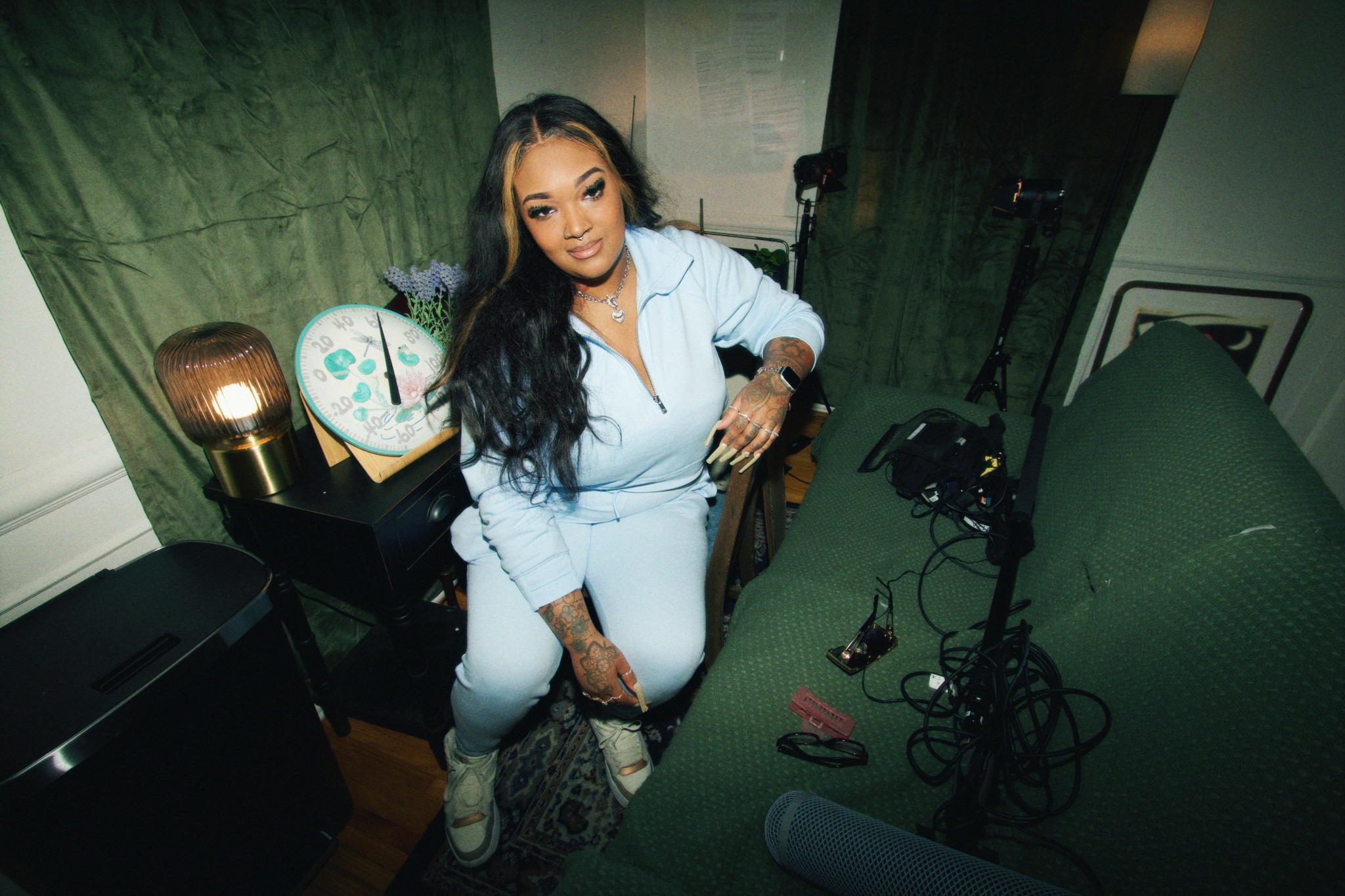
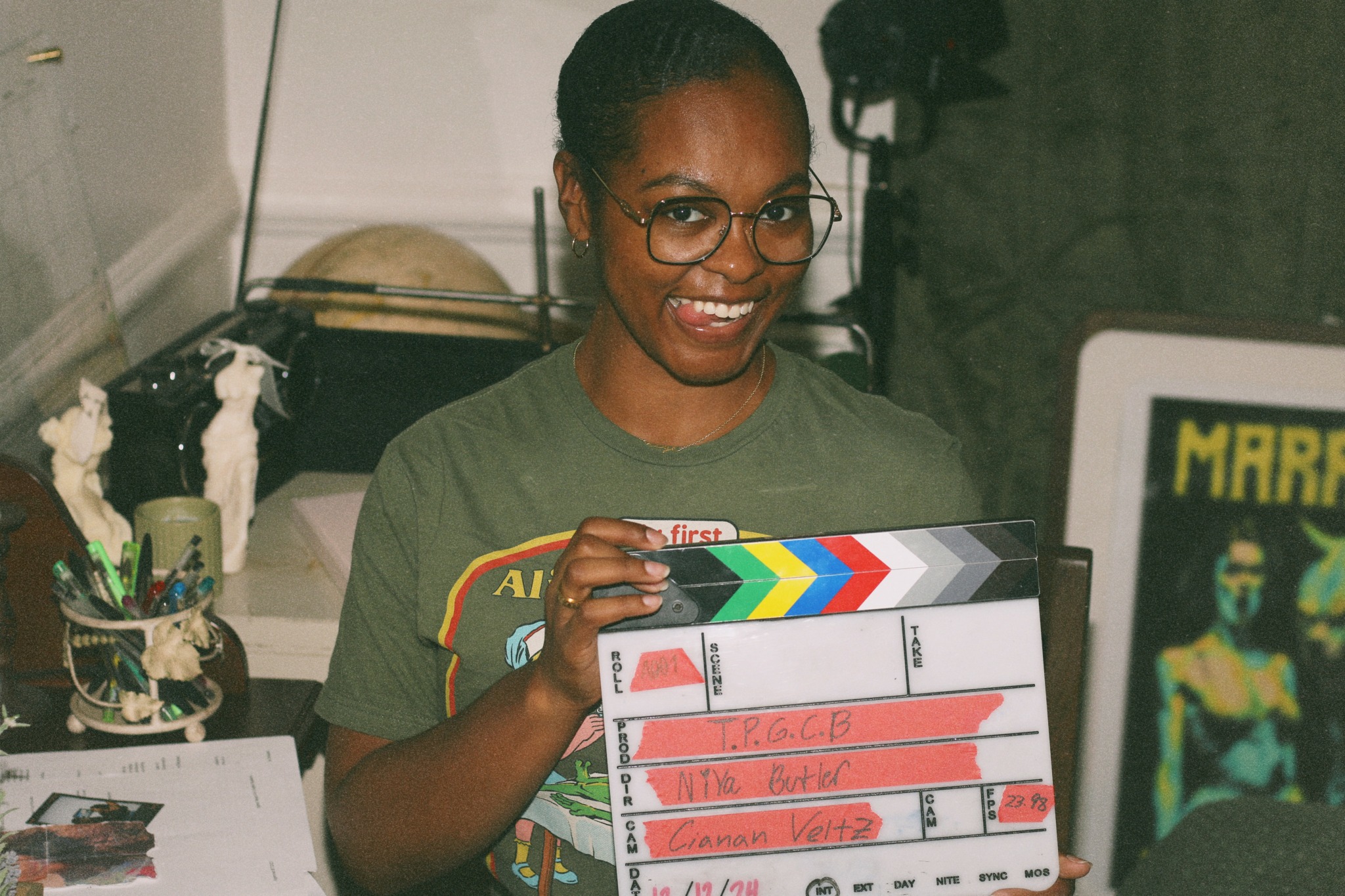
We’d love to hear a story of resilience from your journey.
One of the biggest moments that illustrates my resilience happened this year. In 2024, I finally went full-time with my business, and let me tell you, it’s been a wild ride. There were so many challenges—changes to contracts, like five times this year alone, which meant I had to either hustle to find new work or apply for different contracts. It was a lot, but I kept pushing through.
Another major moment came in January, when I got sober. I’ve talked about my struggles with substance abuse in the past, and January was the first month I really faced sobriety head-on. It was tough. Every time I hit rock bottom, I wanted to fall back into old habits. But I knew that if I did, it would set me back even further. So I kept going, even though it was one of the hardest things I’ve ever done.
Then there was the decision to move to Houston. My mom was super supportive, but my dad wasn’t. He actually told me he wouldn’t cosign an apartment for me, and that really hit hard because I’d never done this on my own before. But I knew I had to do this for myself, especially after everything I went through in my last year of college. I had to leave New Orleans and move on from the trauma I’d experienced there. So, I found an apartment, worked out the finances, and I was ready to go. Moving at 23, full-time in my business, was scary as hell. But it was also one of the best decisions I’ve made.
Things didn’t stop being tough, though. As soon as I moved, I had to deal with a stalker situation, which was terrifying. I had to file a restraining order against someone I’d dated a while ago. It was a huge emotional toll, but I had to power through because I still had my business to run. I wasn’t about to let that derail everything I worked for. After all that, I kept building. I was in LA filming, signing new clients, and producing my first podcast.
This year has been a rollercoaster, honestly. My personal life was a mess at times, but my business kept growing. That, to me, shows my resilience. Despite all the challenges—sobriety, PTSD, personal struggles—I kept moving forward. I’ve always had that drive, and nothing was going to stop me from building my business.
Contact Info:
- Website: https://www.miaupshawprods.com
- Instagram: https://www.instagram.com/miaupshaw/
- Linkedin: https://www.linkedin.com/in/mia-upshaw-a6789530a/
- Other: my creative agency:
https://www.instagram.com/youreliteagency/
www.youreliteagency.com
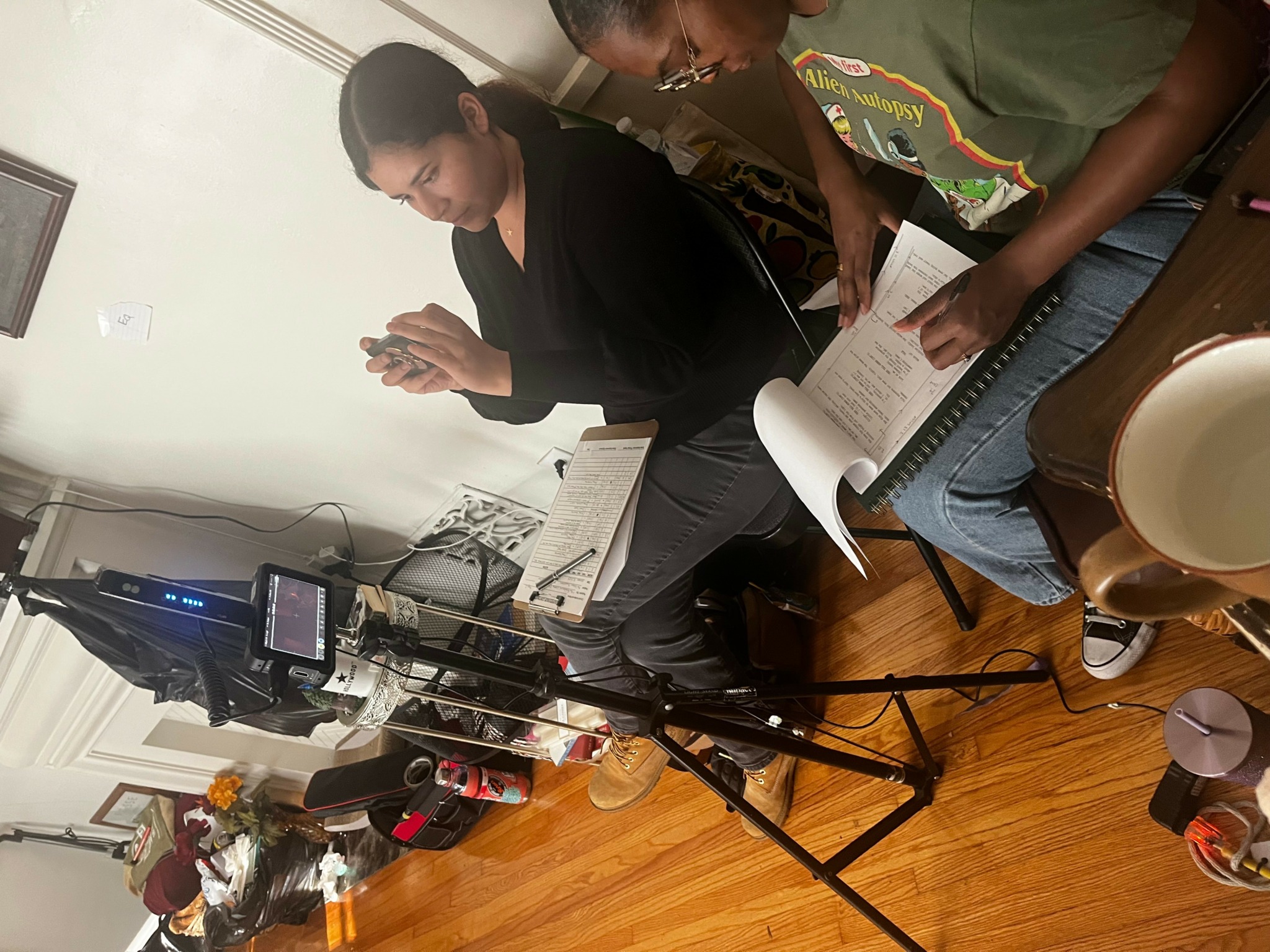
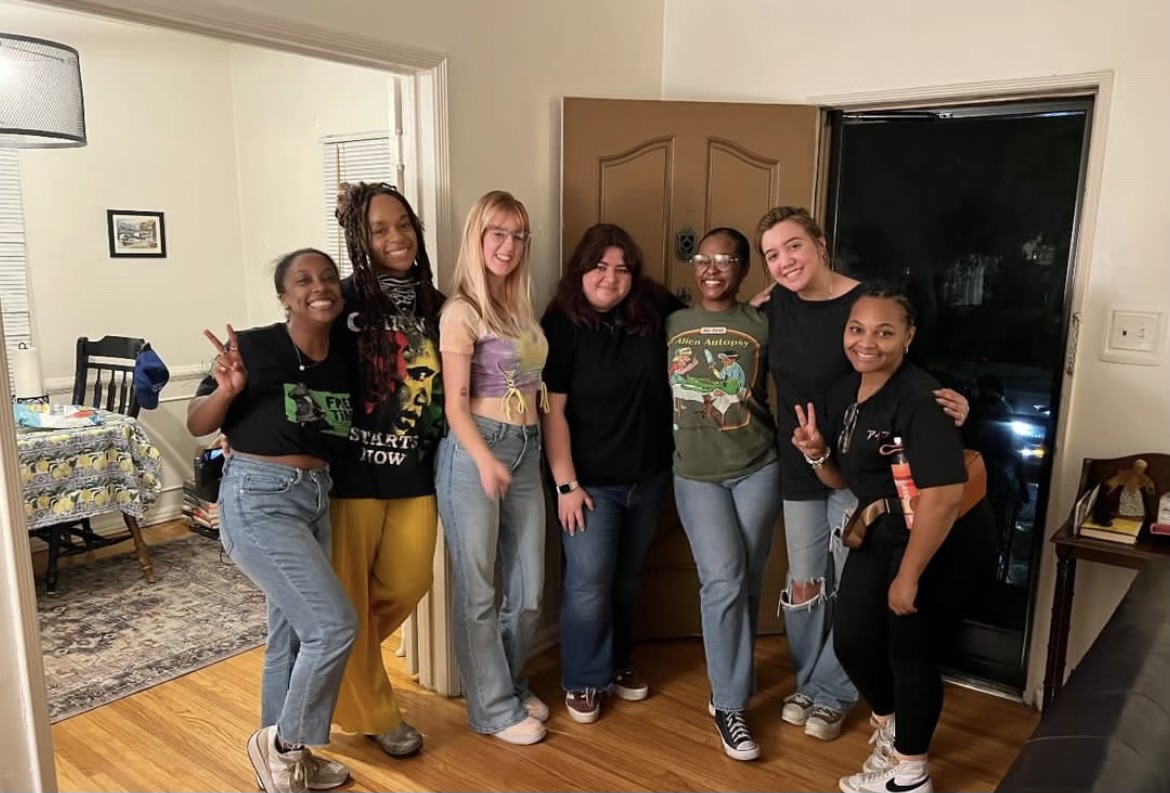
Image Credits
Image 1: Photographed by Miles Fritz, Uzo Njoku (Assistant Director) and Niya Butler (Director)
Image 2: Photographed by Miles Fritz, Olivia Cooper (spfx makeup), Jenifer Hawkins (Costume Designer), Uzo Njoku, and ( assistant producers) Cyannah Lowery, Maya Altimany
Image 3: Photographed by Miles Fritz , Niya Butler and Nicole Delorme (actress)
Image 4: Photographed by Miles Fritz, O-Ren Penson, (2nd Ac) Meyonka Simone (actress)
Image 5: Photographed by Miles Fritz, Mia Upshaw (exec producer)
Image 6: Photographed by Miles Fritz, Niya Butler
Image 7: Maritza Ramirez (Script supervisor), Niya Butler
Image 8: Sierra McFarlane (1st AC ), Uzo Njoku, Jennifer Hawkins , Hazel Reyes (PA), Niya Butler, Kit Centeno (Production Designer), Cyannah Lowery


